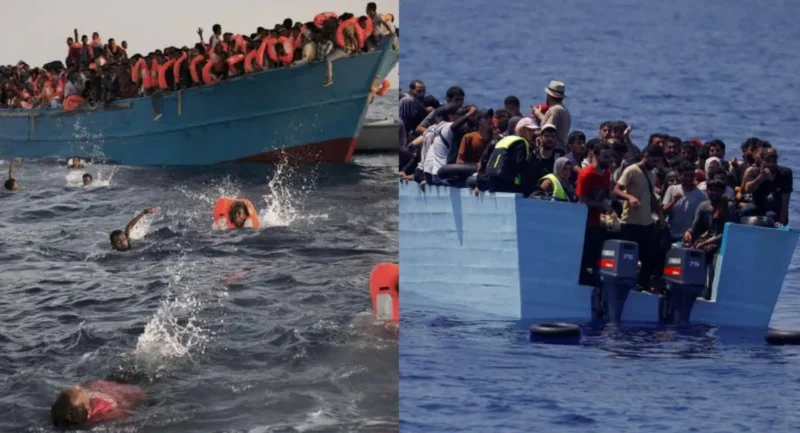The Libyan Department for Combating Illegal Migration (DCIM), in partnership with the Nigerian Consulate in Tripoli, has deported 80 Nigerians involved in irregular migration.
The repatriation exercise took place through Mitiga International Airport in Tripoli earlier this week.
According to Migrant Rescue Watch, a group that monitors the welfare of migrants in Libya, the deportation followed judicial orders issued by the Libyan Judicial Police.
Advertisement
The affected individuals had been detained in different holding centres across the country before being escorted to the airport for their flight home under tight security.
Officials said the repatriation was part of continuous efforts by Libyan authorities, in collaboration with foreign missions, to address irregular migration and reduce overcrowding in detention facilities.
The Nigerian Consulate worked closely with DCIM to ensure that all returnees received proper documentation, consular clearance, and assistance during the deportation process.
Migrant Rescue Watch noted that the operation was conducted humanely and in line with international migration management standards.
It added that cooperation between Libya and Nigeria continues to strengthen as both countries seek lasting solutions to irregular migration challenges.
The 80 deported Nigerians are part of a larger group of African migrants detained in Libya for attempting to cross the Mediterranean Sea to Europe through unsafe and illegal routes.
Thousands of migrants from sub-Saharan Africa pass through Libya every year, hoping to reach European shores in search of better opportunities.
However, many of them end up stranded, detained, or victims of trafficking and abuse.
Humanitarian agencies have repeatedly urged African governments to create stronger job opportunities and safer migration frameworks to discourage irregular journeys.
Libya remains one of the main transit hubs for migrants heading to Europe, despite ongoing security challenges and international efforts to curb the risky sea crossings.








